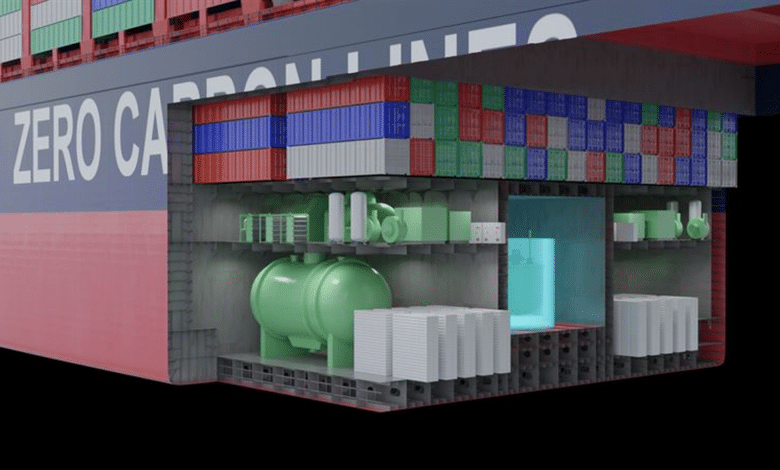ABS study looks at nuclear option for oceangoing vessels

25 Jul 2023by Riviera News
Modelling a box ship and Suexmax tanker, the study predicted a single refuelling over the two vessels’ 25-year lifespans, combined
In the study, ABS and Herbert Engineering Corp (HEC) modelled modern nuclear propulsion systems on a 14,000-TEU container ship and a 157,000-dwt Suezmax tanker.
ABS commissioned HEC to carry out the study to explore the potential of advanced nuclear reactor technology for commercial marine propulsion.
“The study is designed to help industry better understand the feasibility and safety implications of nuclear propulsion and to support future development projects,” ABS said.
On board the container carrier, the study, using input from nuclear reactor developers, modelled the impact of two, lead-cooled, 30-MW fast reactors. Benefits of the propulsion system include a likely increase in both cargo capacity and operational speed, with no need for refuelling during the vessel’s 25-year lifespan.
On the Suezmax tanker, the study modelled the addition of four, 5-MW, heat-pipe microreactors. While decreasing cargo capacity on board, the system would raise operational speeds and only need refuelling once during its 25-year life. Both concept vessels would emit no CO2 emissions during their lifespans.
“Our findings from this latest cutting-edge research underscore why the industry cannot afford to ignore the vast potential offered by nuclear propulsion both in terms of emissions reduction and operational efficiency. A net-zero world is more easily realised through nuclear propulsion, and we are putting in place the foundations for that future today. Turning this into a practical reality will require significant public sector support and ABS is well placed to bring governments and industry together,” said ABS chairman and chief executive Christopher J Wiernicki.
“Advanced or small modular reactors address many of the issues traditionally associated with nuclear for commercial maritime use, with enhanced safety and efficiency, reduced cost, waste and proliferation prevention. Nevertheless, many questions need to be answered, and it is critical that industry evaluate these technologies with a laser focus on safety.”
ABS is actively supporting the development of nuclear propulsion for commercial vessels. The US Department of Energy (DOE) has awarded ABS a contract to research barriers to the adoption of advanced nuclear propulsion on commercial vessels. The DOE has also contracted ABS to support research into thermal-electric integration of a nuclear propulsion system on a commercial vessel being carried out by the University of Texas.
